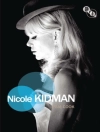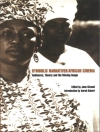During the first fifty years of the American cinema, the act of going to the movies was a risky process, fraught with a number of possible physical and moral dangers. Film fires were rampant, claiming many lives, as were movie theatre robberies, which became particularly common during the Great Depression. Labor disputes provoked a large number of movie theatre bombings, while low-level criminals like murderers, molesters, and prostitutes plied their trades in the darkened auditoriums. That was all in addition to the spread of disease, both real (as in the case of influenza) and imagined ("movie eyestrain"). Audiences also confronted an array of perceived moral dangers. Blue Laws prohibited Sunday film screenings, though theatres ignored them in many areas, sometimes resulting in the arrests of entire audiences. Movie theatre lotteries became another problem, condemned by politicians and clergymen throughout America for being immoral gambling. The Perils of Moviegoing in America: 1896-1950 provides the first history of the many threats that faced film audiences, threats which claimed hundreds, if not thousands, of lives.
Rhodes Gary D. Rhodes
Perils of Moviegoing in America [EPUB ebook]
1896-1950
Perils of Moviegoing in America [EPUB ebook]
1896-1950
¡Compre este libro electrónico y obtenga 1 más GRATIS!
Idioma Inglés ● Formato EPUB ● Páginas 384 ● ISBN 9781441137999 ● Editorial Bloomsbury Publishing (USA) ● Publicado 2011 ● Descargable 6 veces ● Divisa EUR ● ID 2385410 ● Protección de copia Adobe DRM
Requiere lector de ebook con capacidad DRM












